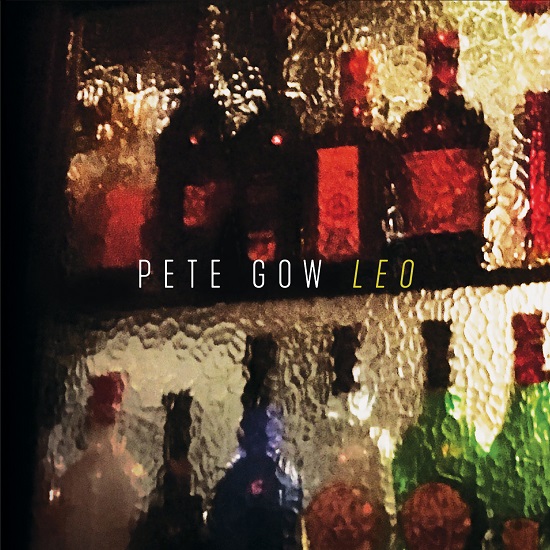
‘Leo’ is the third instalment in the ongoing collaboration between songwriter Pete Gow and multi-instrumentalist Joe Bennett. The previous two albums ‘Here There’s No Sirens’ and ‘The Fragile Line’ have a signature sound that features Joe’s string arrangements; on this album, he’s moved further back into the orchestra to add some horns to the mix, creating a wider palette and a much punchier sound to frame Pete’s (mostly) personal songs. The songs are given a widescreen treatment that nods in the direction of “Born to Run”-era Springsteen, but there are a few other comparisons that maybe aren’t so obvious.
In 1978, a Scottish songwriter living in London released an album featuring a few songs about working in the music business and the characters touching it at tangents that you meet in bars and clubs. ‘City to City’ was a classic Gerry Rafferty album, marrying classic songwriting with interesting arrangements and “Where Would We Be Going” is in the same mould, creating perfect settings for the emotional tug of Pete’s soulful vocals.
The album’s eight songs (‘Where Else Would Be Going?’ tops and tails the album in an upbeat and then a more reflective version) all reward repeated listens. There’s a lot to recommend and to write about every song, but I’ll concentrate on three that cover most of the bases.
‘Side III of London Calling’ is a seedy story of a musician trying to get wired and laid after the gig’s over, set against a mid-tempo groove that nods in the direction of The E Street Band. It’s authentic and gritty and compares the perfection of the woman being pursued to, guess what, ‘Side III of London Calling’. The lyrics keep your attention as wait to hear the outcome and the tune is an absolute earworm. There’s a hint of Elvis Costello/Sam & Dave with a falling down reference and a classic turnaround in the final chorus when the central character describes himself as “just about as welcome as Side V of Sandinista”. It’s great fun.
‘Leonard’s Bar’ is another beast entirely; it’s the centrepiece of the album, it clocks in at over seven minutes and it’s not autobiographical unless Pete has a secret career as an armed robber that he’s not telling us about. It’s difficult to resist the comparison with The Boss’s ‘Meeting Across the River’ as the story unwinds of the career petty criminal coaxed into one last job. The song weaves its way through tempo changes as it builds to the heist section before closing out with The Leo Horns.
‘The City is a Symphony’ is a Joe Bennett co-write that uses the full dynamic range offered by a rock band plus horns and strings as a setting for a lyric that intertwines the pathos of the present with a flashback to a time with a former lover. Joe’s arrangement blends all of the instrumental elements perfectly to create a symphony in miniature that blends seamlessly into the final song, the reflective version of ‘Where Else Would We Be Going?’.
‘Leo’ is a marvellous combination of the important elements of songwriting and production, pulling in ideas from all over the place, including musical references from The Clash to Clapton to create an album with earworms aplenty and a wide range of musical textures that emphasise the power of the lyrics. I’ve not reviewed a better album this year.
‘Leo’ is released on Friday April 22nd on Clubhouse Records.
Here’s the album’s opening single ‘Where Else Would We Be Going?’:
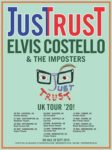 Oh, I just don’t know where to begin…Accidents Will Happen. In late 2018, this venue played host to the early dates of an Elvis Costello tour which didn’t get much further. He was diagnosed with a form of prostate cancer and despite some lurid headlines, he recovered and here he is back treading the boards many, many years after angry young manhood.
Oh, I just don’t know where to begin…Accidents Will Happen. In late 2018, this venue played host to the early dates of an Elvis Costello tour which didn’t get much further. He was diagnosed with a form of prostate cancer and despite some lurid headlines, he recovered and here he is back treading the boards many, many years after angry young manhood.
So it seems a little impolite to, well…I dunno.
The support act kind of underlined the problem here. Singer/songwriter Ian Prowse was very hale, hearty, full of verve, vigour and twinkle, a combination of scouse/Irish wit and charm and poppiness. Clearly thrilled to be playing such a big venue with such a ‘name’ he claimed his eight-year-old daughter came out to see him in Liverpool on the first night of the tour; and that was ‘the first time she’d seen him’ which I don’t think is quite what he meant. He also offered to buy everybody a drink if they met him at the merch stand after his set…careful, Ian. Last time one of our lot made a similar claim it cost me thousands. Seriously though he was very listenable as were his fellow troubadours but the lack of a bass guitar can very rarely be compensated for by a keyboard, I reckon. The final song in the set, “Does This Train Stop on Merseyside” is a bit of a stonker as well. Keep eyes and ears open for Ian Prowse. A good listen.
Elvis, on the other hand…the tour is called Just Trust 2020, and we kick off with a ‘sighter’ from the ’81 ‘Trust’ album, “Strict Time”. I usually allow bands one or two to get settled and to let any gremlins work their way out so we won’t dwell on this one much, followed by “Clubland” and “Greenshirt” which, although intense seemed to be pretty much all over the place mix-wise. I know the venue has a bit of a reputation for wayward sound but this was a really wild ride, a sort of rumbling, grumbling mess. It seemed to these ears that the opposite of what should have been the case was the truth; they were playing like they’d only just met. And with former Attractions Steve Naïve on keyboards (lots of them) and Pete Thomas on drums and with a settled line-up in the Imposters, this took me rather by surprise.
And come the first of the ‘Hits’, the towering majesty of “Accidents Will Happen”, another problem seems to emerge. Occasionally in later life, singers will not be able to hit particular notes. But this doesn’t seem to be the problem here…his vocal range still seems to be there…but the timing is all over the place and sometimes he just seems to be ‘chasing after’ the song; which is a problem for the sharp, angular, quick-fire demands of many of his older hits. His singers/dancers throw themselves about all over the place to give the impression of concerted, rhythmic responses to the music, but they can’t throw me off the scent. I dig in for an evening of irregular but profound wincing. Great, great song, though.
And then “Better Watch Your Step” and a clutch of others…but I’m SO distracted by now. It isn’t just the timing…he’s Very Flat on occasion…then he’ll throw in one of those soooo Elvis vocal trills and you’ll forgive him…and then for the next 30 seconds he sounds like he’s in the wrong key…the mix is beyond muddy and…I’m not sure he can actually hear himself. Can he hear himself?
“I Don’t Want To Go To Chelsea”. Love the song. She’s last year’s model. It’s a killer. Band layer it intensely but he’s chasing the song again…why? I can’t sing but I could probably read the lyrics so they’d actually ‘fit’ the song… all over the place…
…into one for the 2018 album “Suspect My Tears” and possibly because it was written when he was an older man, he does actually get this one to ‘fit’ and glory be, the mix slowly starts to get a bit tighter and more ‘approachable’. After which I’m treated to Elvis telling me he hates me in “Radio Radio” complete with bonkers ‘Farfisa’-style organ and intense and angst-filled playlist envy. Sorry Elvis. Just not radio-friendly, that one.
“Watching the Detectives” is, though. Backlit in eerie green, Costello as ‘spook’ comes to the fore and, at this juncture, it is important I mention the guitar playing. His various ancient and weird-looking guitars and barrage of foot pedals are no doubt very necessary for despite the barrage of keyboards Steve Nieve bounces around behind, there is only one guitarist and it is EC. And the guitar sound is universally excellent, very subtle and supple where required, very sharp and incisive in ways which the interesting but wayward voice now seems less than.
Sitting down at the piano we get the ‘country’ section of the show, including a quite rambling and off-key “Good Year for the Roses”. Always a broken heart/broken voice job, this seriously pushes the boundaries on that particular concept.
From that to another from the 2018 album “Look Now”, “Burnt Sugar is so Bitter” a song co-written by Carole King and this is a right old work-out on a song which tells one of the oldest stories in songwriting in a typically direct way. This worked really well, Steve Nieve’s rattling, empty ‘ice rink’ organ sound giving a hollow, almost ‘Northern Soul’ feel. And speaking of which…”High Fidelity”, a hit from the ‘soul’ album “Get Happy”, which once again, seems to leave his voice behind. Otherwise, just great. But…
“A Whisper to a Scream” jerks us back again to “Trust” and it is an intense delivery, which then melts in to the sublime “Alison” from the first album recorded for about six quid in 1976/7 depending on who you talk to. This is gorgeous and even though the voice does that wandering thing again there are moments within this when all is forgiven, just to hear it ‘live’ again; especially when that folds seamlessly into a marriage with Motown beauty “I’m Gonna Make You Love Me”. Every tune is working to a crescendo now and it would be spectacularly unfair to point out that despite the compromising of songs by a meandering voice, the audience are really warming to this and 80’s FM radio A-lister “Every Day I Write The Book” arrives right on cue and as described in the brochure.
And then “Pump it Up” nearly blows the roof off the place. At the end of it, this guy is a showman. Nobody is going to leave this venue feeling like they’ve been short-changed, I will say that much. And as is the current vogue for encore avoidance, the band stay on the stage and soak up well-deserved applause for a strong and professionally-delivered set. Not their fault the old lad’s struggling to hold a tune on occasion now.
And our final tunes for the night are the “Give Peace a Chance” section of the show and who can blame him? Certainly not I when this commences with “Shipbuilding”. Written by Costello and long-time Madness producer Clive Langer, I have to say I FAR prefer Robert Wyatt’s tremulous, fragile version but I’m here tonight and I’ll take this….but he’s off wandering again and he can’t point at not being able to live with the pace of the song here…and it’s all a bit so-so until he finishes the song on a shimmering, jazzy ‘When we could be diving for pearls’ which just seems to hang in the air and really does force listeners to face the compromises we make with the world in order to be ‘of’ the world.
Which, of course, rumbles straight into a spirited, very ‘dashing’ rock ‘n’ roll version of “Oliver’s Army” which ‘only’ got to Number 2, combining fairly ‘confrontational’ lyrics with the sort of piano that wouldn’t have sounded out of place on an Abba single. Part of our ‘Should have got to number 1; God, where were you?’ club repertoire, anyone would have been excused for thinking that was that, as it could well have been, but pacifist’s corner ended very appropriately and rather touchingly with Brinsley Schwarz’s “What’s So Funny ‘Bout) Peace, Love and Understanding” and that was indeed it, standing ovations all round the crowd no doubt shuffling off into a cold night warmed to the cockles by the memory of familiar tunes played stirringly….and how many of them would recall great acres of vocal creakiness the following morning?
Absolutely well worth going to see but an increasingly flawed masterpiece as the vocals struggle to live with the songs he’s created, I’d like to think he was throwing stuff about when he got off stage because he couldn’t hear what was going on or he’d just had an ‘off night’. But. Maybe it is Twilight Time.
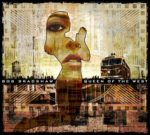 It happens every couple of years; we get a new Bob Bradshaw album, and they’re always worth waiting for. Bob’s a very credible singer with a voice that can bristle with taut emotion or smoothe off the edges to demonstrate a rich baritone for the ballads that has a hint of later-period Elvis Costello. The varied arrangements seem almost effortless and always work to emphasise the qualities of the songs, which are also a rich and varied selection of musical and lyrical styles. As you make your way through “Queen of the West”, the pieces of the puzzle begin to fall into place. It’s not a linear narrative, the album opens somewhere in the middle of the story before bouncing back and forth through various critical episodes in the life of Ruby Black, Queen of the West before the album ends with a trilogy of relationship songs which may or may not feature Ruby, closing with tragic story of a boatload of refugees burnt out within sight of the shore – close enough to hear the sounds of the children singing.
It happens every couple of years; we get a new Bob Bradshaw album, and they’re always worth waiting for. Bob’s a very credible singer with a voice that can bristle with taut emotion or smoothe off the edges to demonstrate a rich baritone for the ballads that has a hint of later-period Elvis Costello. The varied arrangements seem almost effortless and always work to emphasise the qualities of the songs, which are also a rich and varied selection of musical and lyrical styles. As you make your way through “Queen of the West”, the pieces of the puzzle begin to fall into place. It’s not a linear narrative, the album opens somewhere in the middle of the story before bouncing back and forth through various critical episodes in the life of Ruby Black, Queen of the West before the album ends with a trilogy of relationship songs which may or may not feature Ruby, closing with tragic story of a boatload of refugees burnt out within sight of the shore – close enough to hear the sounds of the children singing.
And what about those varied styles? Well, the album opens with the beautifully atmospheric and, appropriately widescreen, title song building the atmosphere with floor toms, shimmering guitar and strings as the narrative opens with a tentative reunion for Ruby. It’s a seductive start that sets the scene perfectly for the rest of an album that impresses with its quality and innovation. As an example, three songs in, “Ruby Black”, with its atonal, angular guitar riff pulls together Ruby’s prayer to the saints for her sick child with reminiscences of her musical career, ending with a choral reply from the saints. Which then leads into the almost vaudeville style of “1-800-SOSAINT” pitching the saints as options on a prayer helpline – it’s clever, original and masterfully delivered. Other favourites? Pretty much anything really, but the incredibly catchy “High Horse” and the laconic “Story Goes” have been heavily praised here at Riot Towers.
There’s a lot of chatter about the demise of the album these days and “Queen of the West” is a great example of a piece of work that’s well-written and structured in a way that keeps you engaged throughout. The character of Ruby is developed in a way that pulls you in to her story, crying at the heartache and smiling at the diamond-hard public persona. “Queen of the West” is designed to be listened to as a single piece – it’s a rewarding experience.
“Queen of the West” is out now on Fluke Records (FR10).
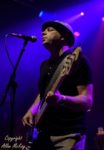 It’s High Fives time again and we had to check twice because we couldn’t believe it the first time – this is the fifth successive year that Neil Sheasby, co-songwriter and bass player in the astonishingly good Stone Foundation has contributed a piece to this feature, so we had to give him another Number One to add to his collection of singles. Stone Foundation have been huge favourites with the Riot Squad ever since a copy of “To Find the Spirit” popped through the letterbox (yep, that was letterbox, not inbox) in early 2013. It’s fair to say we’ve all come a long way since then. Anyway, let’s see what Neil has to say about 2018.
It’s High Fives time again and we had to check twice because we couldn’t believe it the first time – this is the fifth successive year that Neil Sheasby, co-songwriter and bass player in the astonishingly good Stone Foundation has contributed a piece to this feature, so we had to give him another Number One to add to his collection of singles. Stone Foundation have been huge favourites with the Riot Squad ever since a copy of “To Find the Spirit” popped through the letterbox (yep, that was letterbox, not inbox) in early 2013. It’s fair to say we’ve all come a long way since then. Anyway, let’s see what Neil has to say about 2018.
1 – TINY DESK CONCERTS
 The Tiny Desk Concerts are a series of short performances broadcast by NPR music from Washington DC, it’s been a thing for around ten years now I believe but really started to gain momentum via you tube over the past year or two.
The Tiny Desk Concerts are a series of short performances broadcast by NPR music from Washington DC, it’s been a thing for around ten years now I believe but really started to gain momentum via you tube over the past year or two.
I’ve been kind of hooked on them this year and have discovered some great new artists and witnessed sets by heritage acts such as Tower of Power, Trouble Funk, Roy Ayers etc… The ones that really left an impression though were the artists that I didn’t know too much about prior to their stints on Tiny Desk, artists like Tank & the Bangas, Tom Misch, Tuxedo, PJ Morton.
It’s a musical treasure trove, when I get into it I’m there tuned in for hours. Very Inspiring.
2 – DIG THE NEW BREED
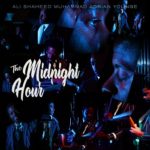 I think 2018 has been a really incredible year for new music, I’ve probably discovered more stuff than ever before.
I think 2018 has been a really incredible year for new music, I’ve probably discovered more stuff than ever before.
Sometimes it may just be a single tune or it may lead to checking out a whole project that really strikes a chord.
I was really taken by “The Midnight Hour” album, a collaboration between Adrian Younge & Ali Shaheed Muhammad. Lots of guest vocalists and also a smattering of instrumentals that remind me of David Axelrod. I also really liked the Tom Misch Album “Geography”, he’s like a young jazz guitarist with cool tunes, I went to see him with my son recently.
“Girlfriend” by Christine and the Queens qualifies for my song of the year, 80’s revisionist stylings delivered with two feet firmly planted in the future.
I also dug records by Seinabo Sey, Leon Bridges, Neil Frances, a band called The Internet and that Childish Gambino tune “This is America”, I thought the video was genius. Real cutting edge.
3 – ELVIS COSTELLO – LOOK NOW
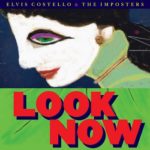 Somewhat of a pleasant surprise. I think this new album is up there with his best work, a great collection of songs that tick all the different boxes and previous guises of EC. His voice is great too, seems to be improving with age.
Somewhat of a pleasant surprise. I think this new album is up there with his best work, a great collection of songs that tick all the different boxes and previous guises of EC. His voice is great too, seems to be improving with age.
I thought Paul’s (Weller) album was really special too, a reflective charm to mark his 60th year.
Nice to have the old guard deliver as well as new delights.
They are two of our finest craftsmen when it comes to songwriting. Long may their flames burn bright.
One other complete surprise from a group I would have possibly wrote off was the new record from China Crisis “Autumn in the Neighbourhood” fantastic songs, still mining a Mersey take on Steely Dan!
4 – DAYS IN EUROPA
 Somewhat ironically in the wake of the confusion and fall out over Brexit, we have been spending a lot of time touring over in Europe. We did a couple of particularly rewarding jaunts around both Spain and Germany. Really great gigs, attendances were fantastic and audiences were so responsive.
Somewhat ironically in the wake of the confusion and fall out over Brexit, we have been spending a lot of time touring over in Europe. We did a couple of particularly rewarding jaunts around both Spain and Germany. Really great gigs, attendances were fantastic and audiences were so responsive.
They value the arts and culture & invest in it a lot more than we do here.
I respect and enjoy the more considered approach abroad, there seems to be more emphasis on community and an air of positivity & solidarity.
I’m mystified as to why we would want to distance ourselves as a nation from the great bonds that have been forged for so many years with our neighbours across Europe.
I can understand & appreciate some EU rulings & laws are flawed but the bigger picture of us alienating ourselves from the rest of Europe as people on a humanitarian level just can’t bode well for future generations.
I’m not so sure it was broke to the extent of forcing such extreme changes upon us.
We loved our time touring out there this year, a real highlight of the 2018 calendar.
5 – HOME TAPING (still killing music?)
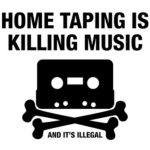 The week our album “Everybody, Anyone” was released I was asked to make a playlist by our friend Danny Champ for his Union music store Spotify feature. I sent over about 20 songs that I liked and Danny published them on Spotify which in turn made me finally investigate the merits of it.
The week our album “Everybody, Anyone” was released I was asked to make a playlist by our friend Danny Champ for his Union music store Spotify feature. I sent over about 20 songs that I liked and Danny published them on Spotify which in turn made me finally investigate the merits of it.
I soon realised the joys to be found in making playlists on there, I found it kind of replaces my love of compiling songs on cassette for people, I’d missed that.
Home taping. It’s kind of a musical love letter.
I’ve embraced Spotify this year and not only pieced together several (very well received) compilations that I sent out on social media for anyone that was remotely interested, I also found it to be another avenue to discover new tunes & artists, which of course has to be a good thing right?
Record collecting via the physical format will always remain my passion but I was buoyed and excited to find another way of connecting and sharing great music.
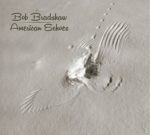 It’s a musical ‘all you can eat’ buffet; a long-time outsider’s view of American popular music exploring some of the high protein meat dishes, but meandering through some of the more delicately flavoured and textured dishes as well. To add to the complexity, it’s a set of songs created by a self-taught musician who also happens to have studied for a popular music degree. Sophistication and raw rock power are both on the menu for this musical feast. On his previous album, “Whatever You Wanted”, Bob Bradshaw saved the best (in my opinion) for last, closing the album with the wonderful road song, “The Long Ride Home”. On “American Echoes”, he opens with the lovely, acutely-observed “Exotic Dancers Wanted”; all of smalltown America is there as he melds Tom Waits with Bob Seger’s “Mainstreet” to create a quiet classic of a song about desperation, drugs, booze and pole-dancing. He even throws in a W.B. Yeats reference.
It’s a musical ‘all you can eat’ buffet; a long-time outsider’s view of American popular music exploring some of the high protein meat dishes, but meandering through some of the more delicately flavoured and textured dishes as well. To add to the complexity, it’s a set of songs created by a self-taught musician who also happens to have studied for a popular music degree. Sophistication and raw rock power are both on the menu for this musical feast. On his previous album, “Whatever You Wanted”, Bob Bradshaw saved the best (in my opinion) for last, closing the album with the wonderful road song, “The Long Ride Home”. On “American Echoes”, he opens with the lovely, acutely-observed “Exotic Dancers Wanted”; all of smalltown America is there as he melds Tom Waits with Bob Seger’s “Mainstreet” to create a quiet classic of a song about desperation, drugs, booze and pole-dancing. He even throws in a W.B. Yeats reference.
To keep the culinary metaphor on the boil, “American Echoes” is a smorgasbord of musical stylings, or a pick ‘n’ mix if prosaic is your preference. It ranges all the way from the out and out rocker “Weight of the World”, with its huge riff, two guitars and The Who stylings to the acoustic ballad “Stella” with a Chris Izaak guitar sound and a vocal that’s a dead ringer for Elvis Costello in lower-register ballad mode.
There’s a bit of lyrical invention as well, to match the musical melange. “My Double and I” is a modern take on the Jekyll and Hyde theme matched up with a laid-back New Orleans jazz groove (with a nod towards Steely Dan’s “East St Louis Toodle-oo”), while “Working on My Protest Song” combines the kind of rhythms Paul Simon discovered in Africa with a mildly sarcastic dig at musicians who opportunistically appropriate protest movements for their ends. And the list goes on.
The bottom line is that Bob Bradshaw has produced another very fine album indeed. “American Echoes” is packed with great lyrical and musical ideas and gets better with repeated plays.
“American Echoes” is released in the on UK Fluke Records on Friday October 20.
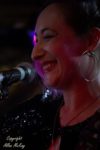 As far as interviews go, I think I’ve been really lucky. In six years, I’ve never had that experience of the uncooperative, bored, jet-lagged or just plain hostile interviewee. I’ve had to work in cupboards stage-side while rock bands soundchecked, but everyone I’ve met has been interesting and charming. I’m pleased to say that Rachael Sage (singer, songwriter, guitarist, pianist, artist and designer) extended my winning streak when I met up with her before her performance at the Discovery showcase at 229 on Great Portland Street to talk about her new album “Choreographic” and her current UK tour (among other things). I even added a new Yiddish word to my vocabulary. Here’s how it went:
As far as interviews go, I think I’ve been really lucky. In six years, I’ve never had that experience of the uncooperative, bored, jet-lagged or just plain hostile interviewee. I’ve had to work in cupboards stage-side while rock bands soundchecked, but everyone I’ve met has been interesting and charming. I’m pleased to say that Rachael Sage (singer, songwriter, guitarist, pianist, artist and designer) extended my winning streak when I met up with her before her performance at the Discovery showcase at 229 on Great Portland Street to talk about her new album “Choreographic” and her current UK tour (among other things). I even added a new Yiddish word to my vocabulary. Here’s how it went:
Allan – Hi Rachael.
Rachael – Hello.
Allan – How’s the tour going so far?
Rachael – The tour’s been really great. This tour’s a little bit different because, in addition to the club shows at night, we’re also doing workshops in the daytime along the tour route at various schools, either performing arts schools or the dance and drama departments of general schools along the way and it’s been fascinating. I’ve never really done that before; I’m not a teacher, I’m kind of inexperienced at that, but I seem to have a special relationship with kids between nine and fourteen so we’ve been enjoying and learning a lot.
Allan – And presumably that means that you’re performing at unusual times.
Rachael – Indeed it does. We’ve had some crazy call-times to meet at the tour van in the morning, like seven-thirty in the morning to drive a couple of hours to perform at 10 a.m. Actually, this morning we played at 9:30. But on the upside, our jet-lag is so confused that it’s non-existent; we don’t know what time zone we’re in. When we go home to New York, it’ll probably be easier to re-acclimate.
Allan – When you come to the UK, do you find the audiences very different from American audiences?
Rachael – I suppose it would be more politically correct to say no, that audiences everywhere and every environment around the world are just about the same, because people are people and we have deduced that people around the world love music the same amount and they all want the same things out of life and there is that unifying theme that we experience. But in terms of audience reactions we’ve found UK audiences and European audiences in general to be a lot more open and expressive when they really, really like something and it’s not necessarily loud whistling or heckling. They’ll come up to you after shows and have that familiarity and treat you like you’re their buddy they’ve known forever and talk to you about their own lives and themselves; it’s just an openness and we love that, that’s part of why we keep coming back.
Allan – I’ve spoken to American artists who think when they start the set that they’re dying on stage and suddenly at the end of the song, the audience erupts.
Rachael – I’ve experienced that to an extreme in Japan, where you think you’re not going over at all; they must hate it, and afterwards there’s the most gentle clapping and they come up to the merch table and they want to buy all your CDs when you weren’t even certain they were into it. People have their own way of processing music and there really is no wrong. As long as nobody throws tomatoes, we’re happy.
Allan – I understand there’s an interesting event you’re involved in at the end of the tour as well at the Royal Albert Hall.
Rachael – The Dance Prom? That’s an event where we’re running a contest and the school that performs the winning routine to one of my songs will receive a scholarship from my record label Mpress Records and myself. I’m not performing at the event, but it’s very much tied in to the “Choreographic” dance theme of this tour. We’re going to be back in London at the O2 Academy in Islington on October 28th, and The Bedford on November 1st. Looking forward to that.
Allan – For the benefit of the MusicRiot audience, tell me a bit about your background, because it’s been very varied, hasn’t it?
Rachael – It has, and yet everything has had the thread of music really. I started playing piano by ear when I was about two and a half/three years old which the exact same time I was thrust into a pre-ballet where really all you’re doing is running around and spinning around and having fun, somewhere for you to be busy while your Mom gets a break, but it quickly bloomed into a full-blown young ballet career and I ended up becoming quite serious as a ballet dancer and at the same time very serious about being a songwriter. I learned to play by ear pretty much exclusively from sounding out all the music I heard every day in dance class. So I would go home and play all these classical pieces and I have no knowledge of the composers or what they were called because it was an informal education, but it was a very thorough education and I think my sense of melody and dynamics really stemmed from classical music.
Jumping ahead, I kept the songwriting up and I pretty much knew, I wanted to be a professional singer/songwriter and composer well before high school, maybe at thirteen/fourteen. Then for my Bat Mitzvah, my relatives got together and bought me a four-track tape recorder. Once I mastered that, I fancied myself as a budding producer, bouncing vocal tracks and having a good time with that, and by the time I went to college, I was very firm that I wanted to be a recording artist and tour the world doing pretty much what I’m doing now, so I guess I was a planner.
Allan – I’ve spoken to artists who agonise about the genre they’re working in and the way it affects sales of their work…
Rachael – There’s an expression in Yiddish that I have to respond to that; it’s spelt F-E-H. Genre’s a useful tool to help maybe turn people on to your music to be able to describe it in an elevator pitch, as they say. Actually, yesterday another writer asked me ‘How would you describe your music in three words?’, and I said colourful chamber pop. The reason I said that was first of all, I’m in England and I feel like you have a unique appreciation of pop music and also that pop music is a broader genre here. If you say pop in America, people assume you mean Katy Perry and here it could mean The Beatles or Elvis Costello, you know, pop/rock, so it’s broad enough to feel like I’m at home in that category.
Allan – With “Choreographic”, you’ve pretty much invented your own genre, haven’t you?
Rachael – Oh my goodness, thank you. I didn’t invent the word, unfortunately. I guess what I did, what’s interesting is that my music was being used and embraced by the lyrical dance community in America and also over here well before I was aware of it and then a few of my diehard supporters started sending me YouTube links where I would see these full-blown dances to my songs in competitions and winning awards and I didn’t really know about that competitive dance culture because the in dance culture that I grew up with, there were no contests; it was strict ballet and that wouldn’t have been allowed, but it was fascinating to see these young, very prodigious, hard-working kids performing and interpreting the music in a way that that was completely different from how I might have envisioned it and sort of humbling. At the end of the day, you create it and the minute it comes out of you, it’s really not yours anymore; it’s collective ownership and I love that. Eventually when the show ‘Dance Moms’ started using the music, it brought me back to that time in my youth when dance was a huge part of my life and it defined who I was as a person and I hadn’t really thought about that time for a long time. When you’re a former ballerina, you kind of put it behind you because there’s some bitter-sweetness; it was painful and very gratifying, like breaking up with an ex-boyfriend or girlfriend. You move on and you let it go, but this was a good time to revisit it and come at it musically from a more positive angle, I would say.
Allan – With “Choreographic”, there must be certain elements that make it work for that kind of interpretation.
Rachael – Yes, what happened originally was that they were using all these different songs from various albums of mine and of course there were different types of songs on those albums, but the ones they were using were usually very pianistic and very arpeggiated. I guess the average person might say there were hints of classical technique in the piano playing, and then also a lot of stringed instruments, cellos and violins, so I picked up on that. More than anything when I sat down to make this album, I tried to come at it more from a visual perspective of what I thought would work in a multi-media context with dance and music and I could only go by what my imagination was offering. I have done some choreography in my day, it’s not my forte, but I’m such an avid fan of dance and choreography in general that I have a pretty good sense of dynamics and what might be danceable, so that’s really where I was coming from. I also had the visual in my head of perhaps, one day, bringing one dancer or several dancers on tour with me and doing more of a show that’s theatrical as well as pop and that’s still in the works. We’re thinking about mounting something along those lines in New York in January.
Allan – Presumably, as well as the musical side, it has to have a fairly strong narrative as well. Your songs tell stories.
Rachael – Well, the genre of dance which has embraced my music most has indeed been lyrical dance, which is this term I had no familiarity with and I see these young girls, sometimes boys, but not as often, interpreting the music, usually very literally. I have a song called “Barbed Wire”, which was performed on ‘Dance Moms’ and the song itself is about someone in your life who can’t make up their mind and they’re very ambivalent, and how frustrating that is for you when you are certain how you feel. I think adults or maybe contemporary professional dancers might have interpreted it with more of an abstract approach, where you felt the emotion but it wasn’t quite so literal and of course the ten/eleven/twelve year olds literally had a backdrop of a barbed wire fence and were climbing it and interacting with it, and that was so interesting because it hints at the idea of doing a live show where the average person sometimes does need those very accessible touch zones to identify with a new art form.
Allan – Is it true that you actually wrote the album here in London as well?
Rachael – I did, yes. I wrote it in Camden. I had two festivals pretty far apart for me. I like to fill every single day, because I’m a busy OCD kind of an artist and I don’t like days off; they make me nervous. We were coming up on those shows and we had choice between trying to pick up some radio in between or just leave that gap and I said ‘You know what, it’s time for me to write a record.’ I’ve never quite set that deadline for myself before. I usually just let it happen organically; over the course of a year, I write twelve songs and then I have an album and then I’m ready to go record, but I had recently reunited socially with my co-producer from many, many years ago, Andy Zulla, who did my first few records with me, and we hit it off again so beautifully and we got all excited to collaborate again. He said to me ‘When you come back from England, if you have a batch of tunes ready, I can record with you in August and then I’ll be busy again after that, but keep me posted.’ That was a driver as well; I wanted to come back armed, like a fashion designer would feel: ‘I want that fall line all ready to go’. I had five days in Camden, so I holed myself up in a hotel, ditched the car and the tour van and stayed at a Holiday Inn Express. I’d go walking every day and just take in the energy of the city and then I wouldn’t let myself go to sleep unless I’d written at least one song. So that’s the story of how this record was written. It was during Glastonbury Festival too so that was what I watched if anything on the television and it kind of inspired me as well.
Allan – Apart from music and dancing, you have other artistic interests as well, haven’t you?
Rachael – I do, and that’s also why I was drawn to the word choreographic, because I’m a visual artist and I’m a graphic designer, but it evolved more out of necessity than anything else because I run my own record label and when you do that you have to wear a lot of hats, so there have been times when I felt I would just do better designing my own artwork because I had a specific vision. I just figured it all out and so there’s that graphic, visual aspect to my work and there are many artists I admire who have that as well like David Bowie, Kate Bush and David Byrne, so many artists, even John Mellencamp, Tony Bennett, who I admire and I’ve become very interested in their artwork as well and that helps me to have a window into another side of them. I hope that people explore that aspect of my work as well and I have a section on my website, ’Visuals’, where you can see my paintings and collage, and just recently I developed some wearable art; I’ve been painting on jackets and dresses and things like that and it’s just another fun outlet for me creatively.
Allan – I’m always fascinated that most of the very gifted musicians I know have various other artistic interests, like photography, as well…
Rachael – Probably keeps them sane…
Allan – One last question, is there any particular song that always make you cry?
Rachael – My favourite contemporary folk artist is Glen Hansard. I was recently at his concert at Carnegie Hall and I was weeping like a little baby. It’s on his new record. He composed the music for the movie “Once”, which was such an incredible music film and the song’s called “My Little Ruin”. He’s an Irish songwriter who was with The Frames with and there was a Broadway show created from “Once”, which won the Oscar for best song and it ran in the UK and Ireland as well. He’s in the vein of Damien Rice, that kind of vibe, beautiful string section, acoustic guitar and I’m a big Irish music fan. Anything Irish makes me cry.
Allan – Many, many thanks Rachael.
Rachael’s album “Choreographic” is released in the UK on November 11 on MPress Records. You can also see photos from Rachael’s performance at 229 here.
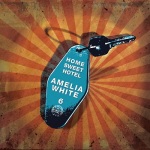 Amelia White is from East Nashville. As Sam Lewis explained recently at Green Note, the distinction between downtown Nashville and East Nashville is one that means less and less the further you get away from Nashville, but it’s an important one. Downtown is the centre of the country establishment and East Nashville’s the edgy, hip satellite where you’re likely to hear something a bit out of the ordinary and “Home Sweet Hotel” certainly isn’t what you would call mainstream country. There’s a bit of a harder rock edge to most of the songs with a bit of overdriven guitar and some nice double lead guitar arrangements to spice the mix up.
Amelia White is from East Nashville. As Sam Lewis explained recently at Green Note, the distinction between downtown Nashville and East Nashville is one that means less and less the further you get away from Nashville, but it’s an important one. Downtown is the centre of the country establishment and East Nashville’s the edgy, hip satellite where you’re likely to hear something a bit out of the ordinary and “Home Sweet Hotel” certainly isn’t what you would call mainstream country. There’s a bit of a harder rock edge to most of the songs with a bit of overdriven guitar and some nice double lead guitar arrangements to spice the mix up.
The opening song “Dangerous Angel” is the first clue that this is a long way from mainstream country; there’s a slight emphasis on the offbeat which isn’t quite reggae, but it’s certainly leaning in that direction. From here on the album moves through a variety of musical stylings, including the uptempo country rock of “Leaving in my Blood” through the early Dylan feel of “Dogs Bark” to the slow sixties feel of “Right Back to my Arms” and “Six Feet Down” which close the album.
The lyrical theme running through the album is the performer moving along from town to town and it’s one that’s fairly common in current Americana. There’s no romance to being on the road, it’s just a succession of cheap motels and long drives and Amelia highlights this, and the longing to be back among family and friends (and with a lover). Her lyrical style is succinct; songs that seem to be densely packed with lyrics when you hear them turn out to be just a few lines long when you see them on the page. “Dogs Bark”, a warning against shooting your mouth off is a great example; it rattles along like some early multi-versed Dylan epic, but it’s really just a few very well-written lines (and some advice that Elvis Costello should have taken a long time ago).
Amelia sees herself as a songwriter first and performer second, and the craft in the construction of the songs is evident; there isn’t a word wasted and the lyrics are matched by the musical settings. And the East Nashville thing isn’t just about living there; Amelia creates a sense of place with references in “Rainbow over the Eastside” and the line ‘Hanging at The Family Wash’ from “Melissa”. It’s not just a place, it’s a way of life.
“Home Sweet Hotel” is out now on White-Wolf Records.
It’s time to move away from albums, gigs and photos for a while and take a look at some of the music-themed books that have kept me sane on buses, trains and planes during 2015. By sheer chance, I’ve managed to pick out quite a nice variety of styles and themes, so the selection staggers from light-hearted memoirs through serious autobiography to high technology and serious crime (no, I don’t mean the new Coldplay album). So, as ever, in no particular order, here we go.
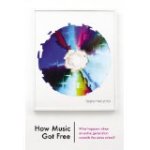 “How Music Got Free” – Stephen Witt
“How Music Got Free” – Stephen Witt
There’s a myth that’s been perpetuated about the origins of the current situation where we have a generation that won’t pay for music and a generation that doesn’t even recognise the concept of paying for music. What Stephen Witt’s book achieves is a comprehensive demolition of the myth that file-sharing came about because of some sort of people’s revolution where millions of like-minded people decided to share their digital music collections. This well-researched work picks out the various converging paths ultimately leading to the digital devaluation of music. The book explores the bureaucracy that bedevilled the adoption of a standard compression algorithm, the greed of the major music labels as they rushed into the highly lucrative CD market, the failure of the majors to react to the phenomenon of file compression (and increasing online transfer speeds which made sharing a viable proposition) and the outright criminality involved in stealing and counterfeiting masters from CD pressing plants. It’s a fascinating but ultimately depressing book.
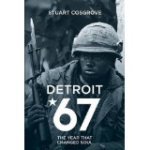 “Detroit 67: The Year that Changed Soul” – Stuart Cosgrove
“Detroit 67: The Year that Changed Soul” – Stuart Cosgrove
Stuart Cosgrove has picked out a pivotal year in the history of Motown and imposed a structure of a chapter per month (it works pretty well) which sets the upheavals at Motown against a backdrop of riots in Detriot, unrest in the police force and a general national malaise. Berry Gordy plays a central role in the well-known story of Diana Ross’s advancement at the expense of the other Supremes (and the expulsion of Florence Ballard), but Stuart Cosgrove delves deeper into the sickness at the heart of the company, dealing with the unease of major artists and the ultimate defection of the Holland/Dozier/Holland writing/production team. The book goes far beyond music biography by showing these events in the context of a city in meltdown with riots on either side of the racial divide and a brutal, corrupt police force fanning the flames. It’s a fascinating read, although there are far too many typos in the Kindle edition.
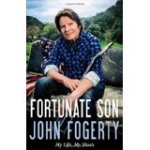 “Fortunate Son” – John Fogerty
“Fortunate Son” – John Fogerty
Confession time: the first song I performed in public was Creedence’s “Up Around the Bend” in a school band which included some good musicians and a future nuclear physicist, and me. I was a fan from an early age. “Fortunate Son” is John Fogerty’s attempt to put the record straight after accusations and counter-accusations, suits and counter-suits with his former band members Doug Clifford and Stu Cook. The book is unflinchingly honest throughout; John Fogerty isn’t trying a whitewash here. He owns up to his mistakes and errors of judgement and this gives him the right to expose others’ lies and hypocrisy. It’s difficult not to empathise with him in his battles with Saul Zaentz and the former Creedence members: he wrote the songs, after all. “Fortunate Son” pivots around John Fogerty’s meeting with his second wife, Julie, who brought order to his chaotic life and pushed him back towards popular and critical recognition. It’s good, it’s honest, it’s straightforward and it’s delivered in an authentic John Fogerty voice.
 “Unfaithful Music and Disappearing Ink” – Elvis Costello
“Unfaithful Music and Disappearing Ink” – Elvis Costello
Declan McManus has an awful lot of stories to tell and, not surprisingly, he has a gift for writing and storytelling. “Unfaithful Music…” is a cracking read, giving an insight into the creation of some wonderful music, and life in the music business bubble. The book doesn’t follow a straightforward chronological structure; it’s much more like a conversation in the pub with each observation triggering another digression. There are some difficult events to deal with (the Stephen Stills/Ray Charles incident for example) and they’re all dealt with in a very matter of fact way. The book skips over some big chunks of Elvis Costello’s life, but the ones he does tackle are done with honesty and candour. The names that crop up as the story unfolds are a history of popular music, but this never feels like name-dropping, they’re just people who happen to have been around at certain times. This is a wonderful book.
“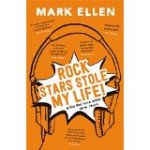 Rock Stars Stole My Life” – Mark Ellen
Rock Stars Stole My Life” – Mark Ellen
Mark Ellen’s memoir is a breezy and self-deprecating run through a life as a pop journalist, radio presenter, TV presenter and publisher. He gives an inside view on life at the NME in the seventies, The Old Grey Whistle Test and the Live Aid broadcast, all delivered in a jaunty style that’s very easy to read. He’s met and worked with some amazing people (again, it’s all matter-of-fact rather than name-dropping), but being a member of Ugly Rumours with Tony Blair takes some beating. Most of the book is fairly gentle humour, smiles rather than guffaws, but Mark Ellen saved the best for last. His account of the mayhem aboard Rihanna’s ill-conceived and farcical round-the-world-in-seven-days tour made me laugh out loud. The entire book’s funny, but this piece was hilarious.
If you don’t see anything you fancy there, Chrissie Hynde’s “Reckless” and Bob Harris’s “Still Whispering After All These Years” are both well-written and interesting biographies.
The last gig in May was in a cellar bar in Edinburgh which held about a hundred people and the first one in June is The Royal Albert Hall which holds about five thousand. I’m going to be honest with you, I normally try to avoid the Albert Hall; the acoustics may be great for The Proms and orchestral music generally, but anything percussive and bottom-heavy usually sounds like a sock full of custard hitting a wall. There; I’ve said it. There may be an acoustic sweet spot, but I’ve no idea where it is and I feel sorry for any sound engineer who gets that particular gig.
Elvis Costello is one those artists who has been around so long, and written so many great songs that, like Neil Young, Bob Dylan, Bruce Springsteen and Van Morrison, he’s entitled to a bit of leeway with his live and recorded output. Just like all of those legends (maybe with the exception of The Boss), he sometimes pushes our tolerance close to the limit and tonight was no exception, but I’ll come back to that. This tour features the “Spectacular Return of the Spectacular Spinning Songbook”, where members of the audience are invited on stage to spin the giant wheel to pick a song from the extensive back catalogue or a theme that allows Elvis or a band member (Steve Nieve, Pete Thomas and Davey Faragher) to choose where the set goes next.
The first six songs were relentless, with the band playing flat out, too fast and leaving no gaps between songs. It sounded a lot like the 1978 El Mocambo official bootleg, and I think we all know that it wasn’t just youthful exuberance and adrenaline to blame on that occasion. It meant that songs like “High Fidelity” and “I Can’t Stand Up for Falling Down” were lost in a headlong rush to the first spin of the wheel. Thankfully, the interactive element of the set forced some much-needed changes of pace. From the first spin of the wheel, things became less frantic as Elvis put on his Napoleon Dynamite, Master of Ceremonies persona and introduced members of the audience aided and abetted by the mysterious Josephine and the go-go dancer Dixie de la Fontaine.
I’m not even going to attempt to give you a complete setlist for a three hour performance, but there were a lot of highlights (and a couple of lowlights), so here we go. We got “Girls Talk” (better known to most as a cover by Dave Edmunds) fairly early courtesy of the wheel, which also gave the band the chance to play a more soulful live version of “Every Day I Write the Book”. It was nice to see Elvis totally ignore the wheel’s selection to throw in “(The Angels Wanna Wear my) Red Shoes” because one of the audience spinners wanted to hear it. The “Cash” segment of the wheel also gave us the obvious Johnny Cash cover, but also a Rosanne Cash song, which is always going to be fine by me. There was also a cameo appearance by the wonderful Bonnie Raitt who, unfortunately, didn’t sing or play but did come along to say hello and be serenaded by Elvis.
A spin of the wheel also gave Steve Nieve the chance to deliver his stunning piano backing on one of my favourite Elvis songs, “Shot With his Own Gun”, which opens with the line “How does it feel now you’ve been undressed by a man with a mind like the gutter press”. As always, this song was made more powerful by the stripped-down backing which also gave a contrast to the first verse of “Oliver’s Army” before the full band kicked in for the rest of the song.
“Jimmie Standing in the Rain” was a perfect fit with the vaudevillian atmosphere of the performance, which you almost expected to lead in to “God’s Comic”, but it was another song from “Spike” which grabbed the attention. “Tramp the Dirt Down” was an angry song, and rightly so, when it was released in 1989, less than two years before Margaret Thatcher was deposed by her party, but I’m puzzled by the need to play it now apart from the obvious unthinking kneejerk reaction it received; bit of a cheap shot, really. If you want to score political points, the haunting live version of “Shipbuilding” stands the test of time much better and should be the one that demonstrates a commitment to something more than just pop songs.
The encores were a return to the hundred mph enthusiasm of the opening section, but with the audience fully behind the band at last as they delivered runaway versions of “Watching the Detectives”, “Pump it Up” and, ironically for this location, “(I Don’t Want to go to) Chelsea”. Just before I get to the main highlight, I’ve got a few observations. The dynamics of the show, particularly at the beginning, could have been better; the endings of the songs could have been less overblown; and, Elvis could have turned the wick down on the guitar solos. At times he strayed into Neil Young territory and that’s a dangerous place to be unless you’re Neil Young (even then it’s hit and miss).
Maybe I’m just being too picky. The Elvis back catalogue contains some stunning songs and even a three hour set means missing out on some favourites; I would have loved to hear “Alison”, “Green Shirts” and “Good Year for the Roses”, but I got to hear “Shot with his Own Gun”, which I really didn’t expect. The last song of the night was Nick Lowe’s “(What’s So Funny ‘Bout) Peace Love and Understanding”, which made my night anyway, but there was still a surprise to come. Steve Nieve dashed off stage and followed a crew member upstairs as the rest of the band played on. Seconds later, the band was augmented by the thunderous sounds of the Royal Albert Hall pipe organ as one of pop and rock’s greatest keyboard players had the chance to finish off the set in a unique way; I certainly won’t forget it.
I had a few reservations but, as a spectacle, (no pun intended) this was wonderful; loads of great songs, great performances and audience involvement. I’d go back and do it again.



